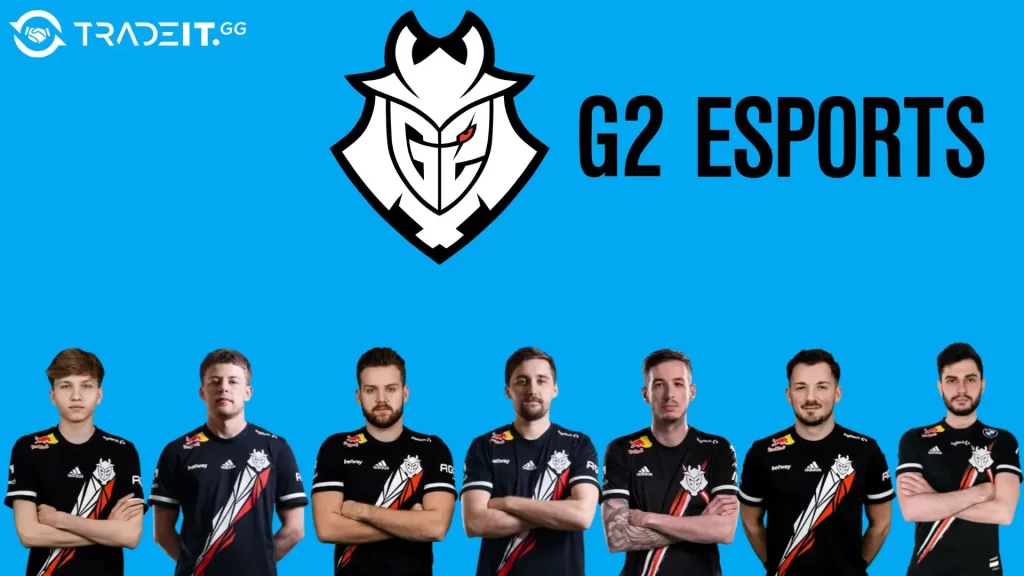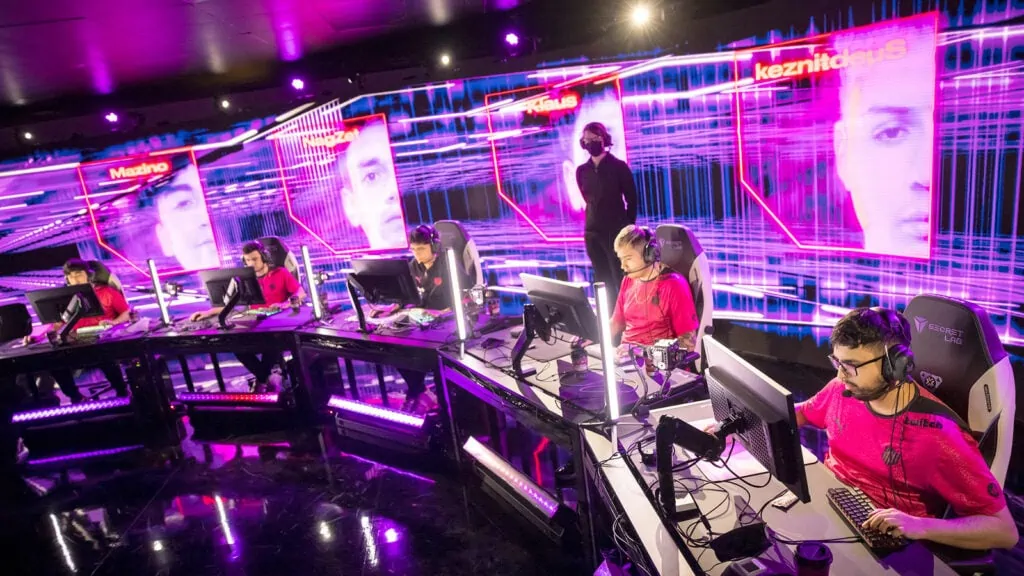In the fast-paced realm of digital competition, Esports has emerged as a cultural and technological phenomenon, captivating audiences worldwide. The journey through the “Rise of Esports: A Digital Revolution Unveiled” invites us to explore the multifaceted landscape of competitive gaming. From delving into the intriguing history that paved the way for Esports’ meteoric ascent to unraveling the cutting-edge technology powering these virtual battlegrounds, this exploration aims to dissect the essence of why Esports has become a global sensation. We will navigate through the largest and most influential Esports, spotlighting the best teams that dominate these digital arenas.
However, it’s not all victory laps and digital glory – we’ll also confront the challenges that lurk beneath the surface of this rapidly evolving industry. Join us on this digital odyssey as we decipher the allure, technology, and challenges fueling the unprecedented Rise of Esports.
Understanding ESPORTS
Esports, short for electronic sports, represents a revolutionary shift in the realm of competitive gaming, transforming it from a casual pastime into a global phenomenon. At its core, Esports involves competitive video gaming at a professional level, where players and teams engage in strategic battles across various genres. The rise of Esports is not merely a surge in popularity but a seismic shift that has reshaped entertainment, technology, and sports culture.
To truly grasp the significance of this digital revolution, it’s essential to delve into the intricacies that define Esports — from the diverse array of games that serve as battlegrounds to the dedicated communities that form around them. Understanding Esports requires exploring its origins, the evolution of competitive gaming, and the unique dynamics that make it a captivating and influential force in the contemporary landscape. It’s a journey into a world where pixels meet competition, skill meets strategy, and virtual arenas resonate with the cheers of a global audience.
History of Esports
The history of Esports is a captivating journey that unfolds across the pixels of screens, the fervor of competitions, and the relentless dedication of gamers. While the roots of competitive gaming can be traced back to the arcade era of the 1970s and 1980s, the formalization of Esports as we know it began to take shape in the late 20th century.
Rise of Esports
1. Emergence in Arcades (1970s-1980s): The earliest inklings of competitive gaming can be found in the buzzing arcades of the 1970s and 1980s. Games like “Space Invaders” and “Pac-Man” laid the groundwork for competitive high-score pursuits, with players vying for supremacy on leaderboards.
2. Birth of Competitive Gaming Leagues (1990s): The 1990s marked a pivotal period with the establishment of formal competitive gaming leagues. “Street Fighter II” tournaments gained popularity, and games like “Quake” laid the foundation for first-person shooter competitions. The Cyberathlete Professional League (CPL) in 1997 is considered one of the earliest organized Esports leagues.
3. Rise of South Korea (2000s): The early 2000s witnessed South Korea emerging as a powerhouse in competitive gaming. With the advent of real-time strategy games like “StarCraft,” South Korea solidified its status as a global Esports hub. The Korean Esports Association (KeSPA) played a crucial role in organizing leagues and fostering a professional gaming culture.
4. Streaming and Online Platforms (2010s): The 2010s saw the democratization and rise of Esports, thanks to the rise of streaming platforms like Twitch. Gamers could now broadcast their gameplay to a global audience, and competitive events garnered millions of online viewers. Esports became a mainstream phenomenon, with major corporations and traditional sports teams entering the scene.
5. Recognition and Globalization (2020s): As Esports entered the 2020s, it achieved unprecedented recognition. The inclusion of Esports in major sporting events like the Asian Games and the Olympics, along with substantial prize pools and mainstream media coverage, underscored its global impact. Esports organizations evolved into multimillion-dollar enterprises, and players became international celebrities.
From humble arcade beginnings to global recognition, the history of Esports is a testament to the transformative power of digital competition. It has not only shaped the gaming industry. Still, it has also blurred the lines between virtual and traditional sports, creating a cultural phenomenon that continues to captivate millions around the world.


The Technology Powering ESPORTS
Esports, a global sensation, thrives on a technological ecosystem designed for precision and immersion. High-performance gaming PCs and consoles, high-refresh-rate monitors, and specialized peripherals form the core hardware, ensuring seamless and responsive gameplay. Cutting-edge networking infrastructure minimizes latency, which is crucial for fair competition. Advanced streaming technology brings the action to millions worldwide, while virtual and augmented reality hint at future possibilities. Data analytics and blockchain tech contribute to strategic refinement, and NFTs are reshaping fan engagement. In this dynamic landscape, technology isn’t just a backdrop; it’s an integral force propelling Esports to new frontiers of innovation and global influence.
Why is Esports so Popular?
The rise of Esports is a multifaceted phenomenon driven by a combination of cultural, technological, and social factors. Here are key reasons contributing to the widespread appeal of Esports:
1. Accessibility: Esports breaks down barriers to entry, welcoming players of various skill levels. Unlike traditional sports that may require physical prowess, Esports allows individuals to compete based on their gaming skills, making it accessible to a diverse audience.
2. Global Connectivity: The digital nature of Esports transcends geographical boundaries, connecting players and fans worldwide. Online gaming platforms and live-streaming services create a global community, fostering camaraderie among enthusiasts from different cultures.
3. Spectator-Friendly: Esports events are designed for spectator engagement. High-quality production, dynamic commentary, and visually captivating games make for an entertaining viewing experience. Streaming platforms like Twitch have democratized access, allowing fans to watch their favorite players and teams in real-time.
4. Diverse Game Genres: Esports encompasses a wide array of game genres, from multiplayer online battle arenas (MOBAs) like League of Legends to first-person shooters like Counter-Strike 2. This diversity caters to different gaming preferences, attracting a broad audience.
5. Professionalization and Sponsorship: The professionalization of Esports has elevated it to a mainstream sporting activity. With organized leagues, professional players, and substantial prize pools, Esports has gained recognition comparable to traditional sports. Sponsorship deals and endorsements from major brands contribute to its legitimacy.
6. Celebrity Players and Teams: Star players and successful Esports organizations have gained celebrity status, with fan followings rivaling those of traditional sports figures. Recognizable personalities contribute to the growth of fan communities and attract attention from mainstream media.
7. Technological Advancements: Continuous advancements in technology contribute to the appeal of Esports. High-performance gaming equipment, virtual reality experiences, and immersive streaming technologies enhance both the gaming and viewing experiences, keeping the community engaged.
8. Social Interaction: Esports provides a platform for social interaction and collaboration. Multiplayer games encourage teamwork and communication, creating online communities where friendships are formed and maintained.
9. Evolving Industry Ecosystem: The Esports industry has developed a robust ecosystem, including sponsorships, advertising, merchandise, and betting. This financial infrastructure adds to the sustainability and growth of Esports as a global entertainment phenomenon.
What Are the Biggest Esports?
Here are the biggest Esport games at the moment:
- League of Legends (LoL): Developed by Riot Games, League of Legends is a multiplayer online battle arena (MOBA) game. It boasts one of the largest player bases and an extensive competitive scene with leagues like the League of Legends Championship Series (LCS) and global tournaments like the World Championship.
- Dota 2: Valve Corporation’s Dota 2 is another prominent MOBA that attracts a massive player base. The annual tournament, The International, offers one of the largest prize pools in Esports, contributing to the game’s popularity in the competitive scene.
- Counter-Strike: Global Offensive (CS:GO): CS:GO, developed by Valve Corporation, currently renamed to Counter-Strike 2, is a first-person shooter that has been a staple in the Esports scene for years. It features highly competitive gameplay and major tournaments such as the Intel Extreme Masters (IEM) and ESL One.
- Fortnite: Developed by Epic Games, Fortnite gained immense popularity for its battle royale mode. The game’s vibrant aesthetics and innovative building mechanics have contributed to its status as a major Esports title, hosting events like the Fortnite World Cup.
- Overwatch: Blizzard Entertainment’s team-based shooter, Overwatch, has a dedicated fan base and a structured competitive scene. The Overwatch League (OWL) features city-based teams competing in a regular season and playoffs.
- Call of Duty: Warzone: As part of the Call of Duty franchise, Warzone is a battle royale game that has gained widespread popularity. It features regular tournaments and events, attracting a large Esports audience.
- Valorant: Developed by Riot Games, Valorant combines elements of tactical shooters and character-based abilities. Its competitive scene has grown rapidly, with various tournaments and leagues emerging to support professional play.
- Rocket League: Psyonix’s Rocket League combines soccer with rocket-powered vehicles, creating a unique and highly competitive gaming experience. The Rocket League Championship Series (RLCS) showcases top teams from around the world.
- Mobile Legends: Bang Bang: Mobile Legends is a popular mobile MOBA game that has gained traction in the mobile Esports scene. It features competitive leagues and tournaments, especially in regions with a strong mobile gaming community.
- Hearthstone: Blizzard’s digital collectible card game, Hearthstone, has a thriving Esports scene. The Hearthstone Grandmasters and global championships attract top players in the card gaming community.
Who Are the Best Esports Teams?
- Fnatic (League of Legends, CS:GO, Dota 2): Fnatic is a multi-game organization with a rich history. They have been particularly successful in games like League of Legends, where they have consistently been a top team in the European scene. Fnatic also has a strong presence in CS:GO and Dota 2.
- Team Liquid (CS:GO, Dota 2, League of Legends): Team Liquid is a versatile Esports organization with successful teams in multiple games. They have achieved notable success in CS:GO, Dota 2, and League of Legends, often competing at the highest levels.
- Astralis (CS:GO): Astralis is a Danish CS:GO team that has been dominant in the competitive scene. They are known for their strategic play and have secured multiple major championships, solidifying their status as one of the best CS:GO teams.
- OG (Dota 2): OG made history in Dota 2 by winning The International (TI) back-to-back in 2018 and 2019, an unprecedented feat in the Esports world. They are renowned for their skilled players and innovative strategies.
- Natus Vincere (Na’Vi) (CS:GO, Dota 2): Natus Vincere, commonly known as Na’Vi, is a Ukrainian organization with successful teams in both CS:GO and Dota 2. They have a storied history and have consistently competed at the highest level.
- G2 Esports (League of Legends, CS:GO, Valorant): G2 Esports is a European organization with competitive teams in multiple games. They have been particularly successful in League of Legends and CS:GO and expanded into Valorant with a strong roster.
- SK Telecom T1 (League of Legends): SK Telecom T1, also known as T1, is a South Korean organization that has been a powerhouse in League of Legends. With multiple World Championships, they are considered one of the greatest teams in the history of League of Legends.
- Dallas Empire (Call of Duty): Dallas Empire is a prominent team in the Call of Duty League (CDL). They secured victory in the CDL Championship in 2020, establishing themselves as a force in the Call of Duty Esports scene.
- San Francisco Shock (Overwatch): The San Francisco Shock is a successful Overwatch League (OWL) team. They won the OWL Championship in 2019 and 2020, showcasing their dominance in the Overwatch competitive scene.
- Evil Geniuses (CS:GO, Dota 2, League of Legends): Evil Geniuses is a well-established organization with successful teams across various games. They have a strong presence in CS:GO, Dota 2, and League of Legends, consistently competing at the top level.
Keep in mind that the Esports landscape is dynamic, and team success can fluctuate over time. New teams may rise to prominence, and established teams may change. It’s advisable to check the latest standings and tournament results for the most up-to-date information on the best Esports teams.


The Challenges In Esports
While Esports has experienced remarkable growth and success, it is not without its challenges. These challenges encompass various aspects of the industry and its ecosystem:
- Player Burnout: The intense training schedules, high-pressure competitions, and constant demand for performance can lead to player burnout. Esports professionals often face physical and mental health challenges, and addressing these issues is crucial for the long-term well-being of players.
- Inclusivity and Diversity: Esports has historically faced challenges in terms of inclusivity and diversity. There are ongoing efforts to break down barriers and create a more inclusive environment for individuals from diverse backgrounds, including gender, race, and ethnicity.
- Infrastructure and Facilities: Developing and maintaining Esports infrastructure, including dedicated arenas and training facilities, can be challenging. Many regions lack the necessary infrastructure to support a thriving Esports ecosystem, hindering the growth of local scenes.
- Player Representation and Rights: Issues related to player representation, contracts, and fair treatment have been raised. Ensuring that players have proper representation and that their rights are protected is an ongoing challenge in the Esports industry.
- Sustainability of Organizations: Esports organizations face financial challenges, particularly smaller teams or those without substantial sponsorships. Sustainability, revenue generation, and financial stability are critical concerns for the long-term success of Esports organizations.
- Standardization of Rules and Formats: Standardizing rules and tournament formats across different games and regions can be complex. Achieving a level playing field and consistency in competitive structures is an ongoing challenge, especially as new games emerge.
- Match-Fixing and Integrity: Like traditional sports, Esports is not immune to match-fixing and integrity issues. Maintaining fair play and preventing corruption is an ongoing effort that involves collaboration between Esports organizations, regulators, and law enforcement.
- Lack of Clear Pathways: Unlike traditional sports, Esports often lacks clear pathways for aspiring players to enter the professional scene. Establishing well-defined structures, such as developmental leagues and talent pipelines, is crucial for nurturing new talent.
- Monetization Models: While the Esports industry has seen significant investment, finding sustainable monetization models remains a challenge. Exploring revenue streams beyond sponsorships and advertising, such as merchandise sales and media rights, is essential for financial growth.
- Educational and Parental Support: Many parents and educational institutions may not fully understand or support careers in Esports. Educating parents, schools, and policymakers about the potential benefits and legitimacy of pursuing Esports careers is essential for fostering broader acceptance.
Conclusion
In conclusion, the world of Esports is a dynamic and evolving landscape marked by incredible achievements, persistent challenges, and a fervent commitment to growth. As the rise of esports keeps happening, it grapples with issues such as player well-being, diversity, and financial sustainability. Yet, these challenges are met with resilience as stakeholders work collaboratively to foster a more inclusive and sustainable Esports ecosystem. The journey ahead holds the promise of continued innovation, technological advancements, and a dedication to creating pathways for aspiring talents. With a global community passionate about competitive gaming, Esports remains a vibrant and transformative force, poised to shape the future of digital sports on a global scale.


